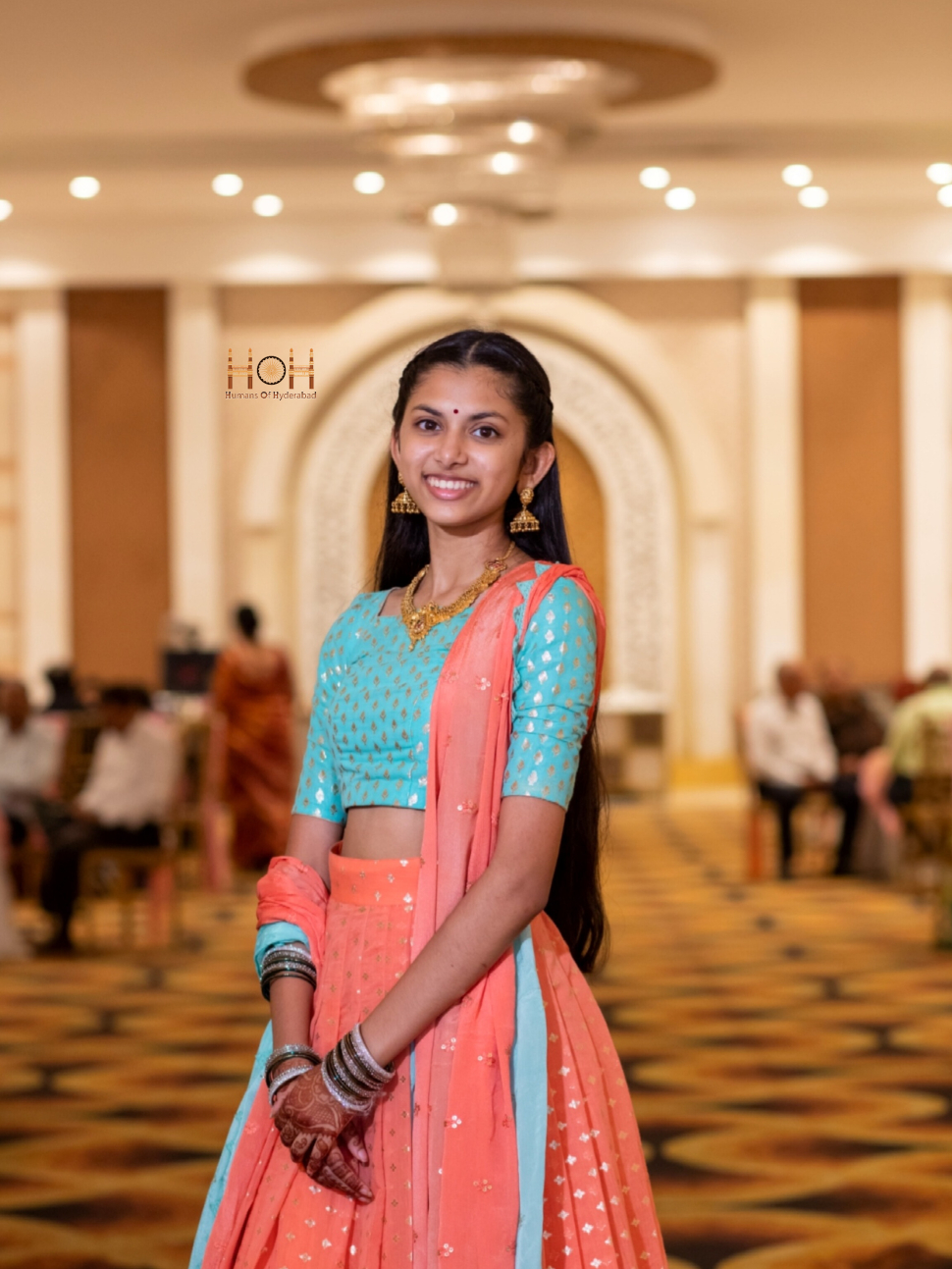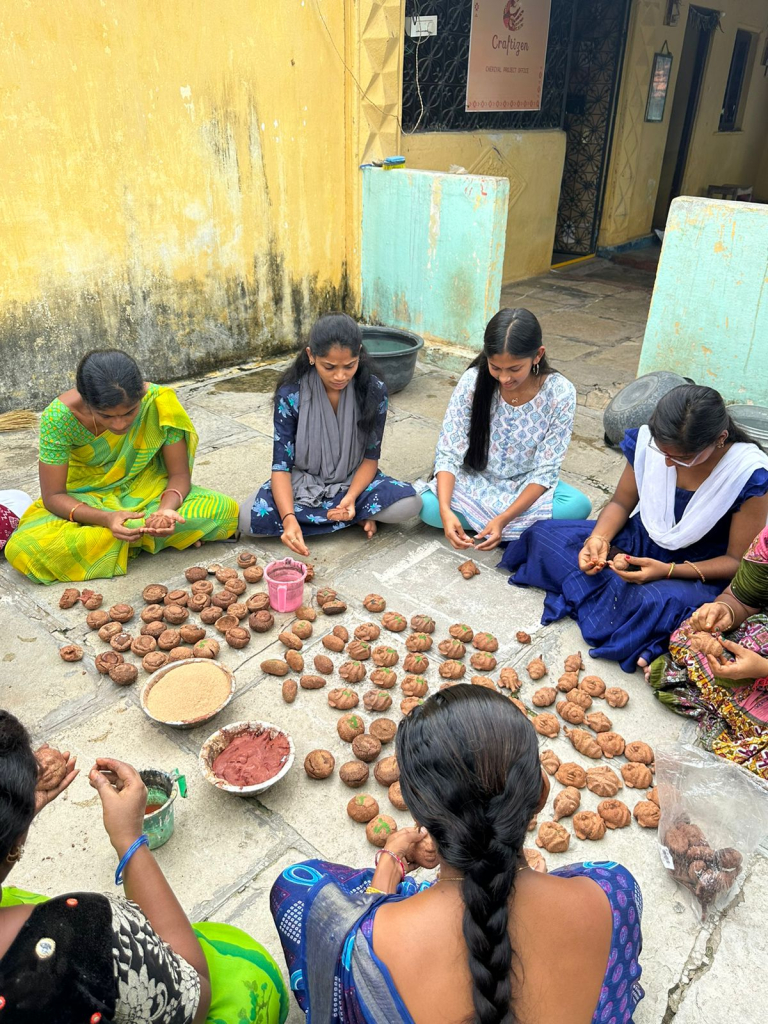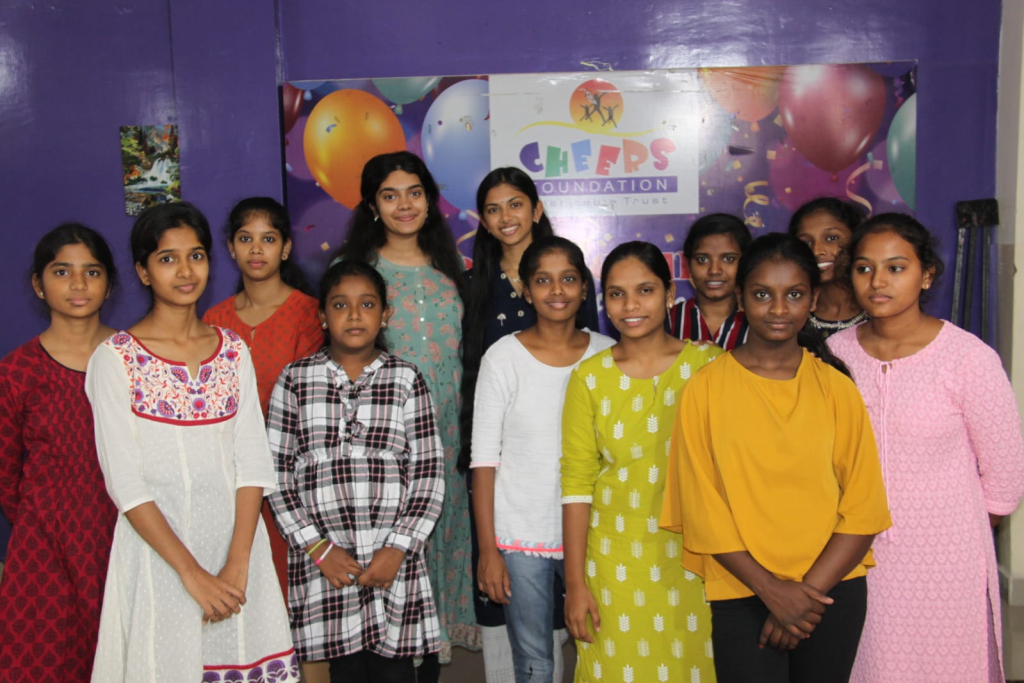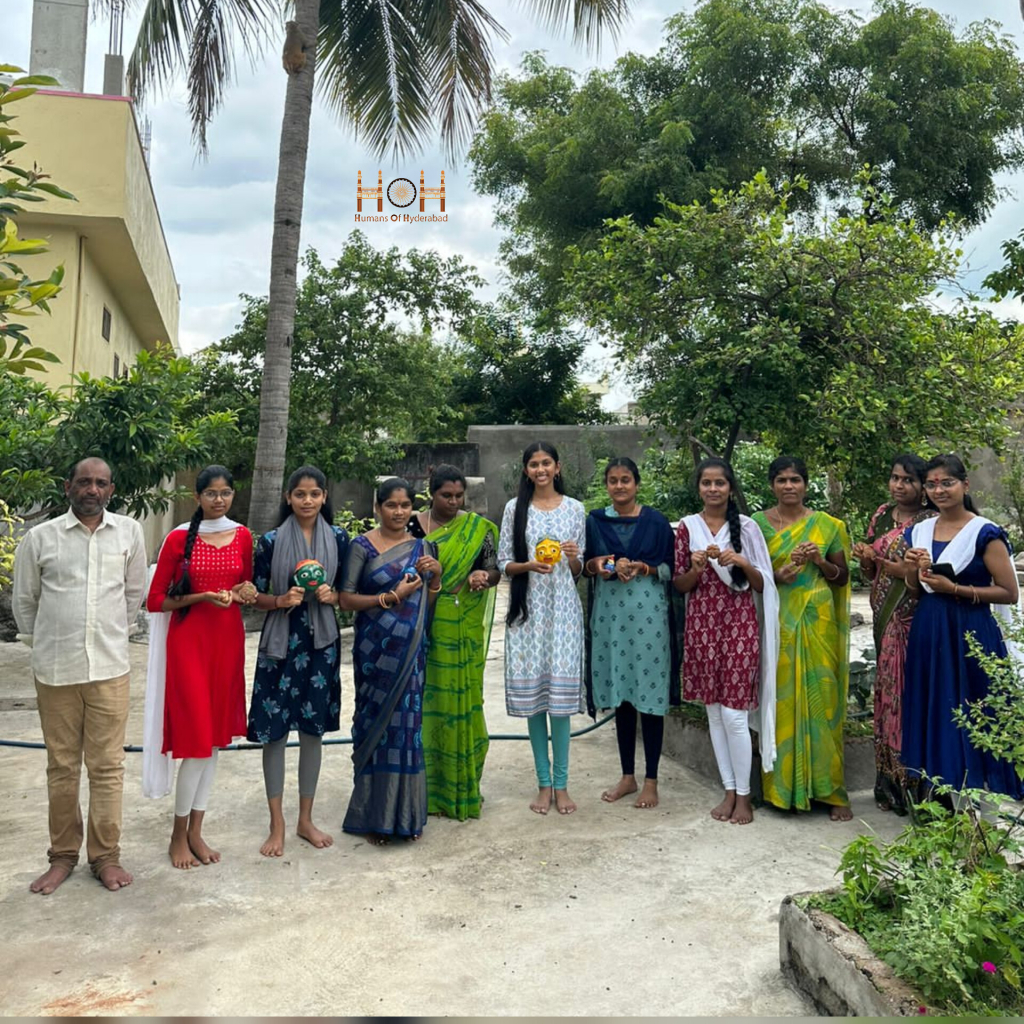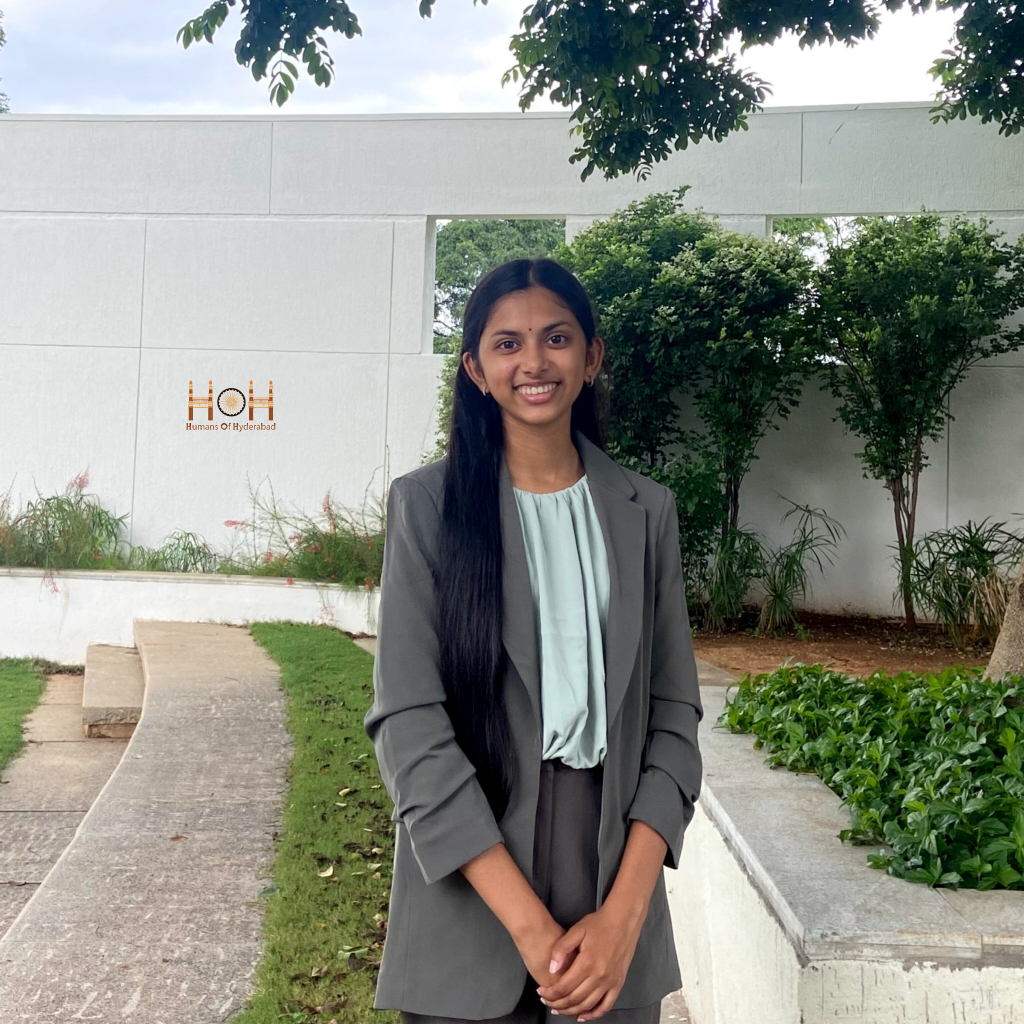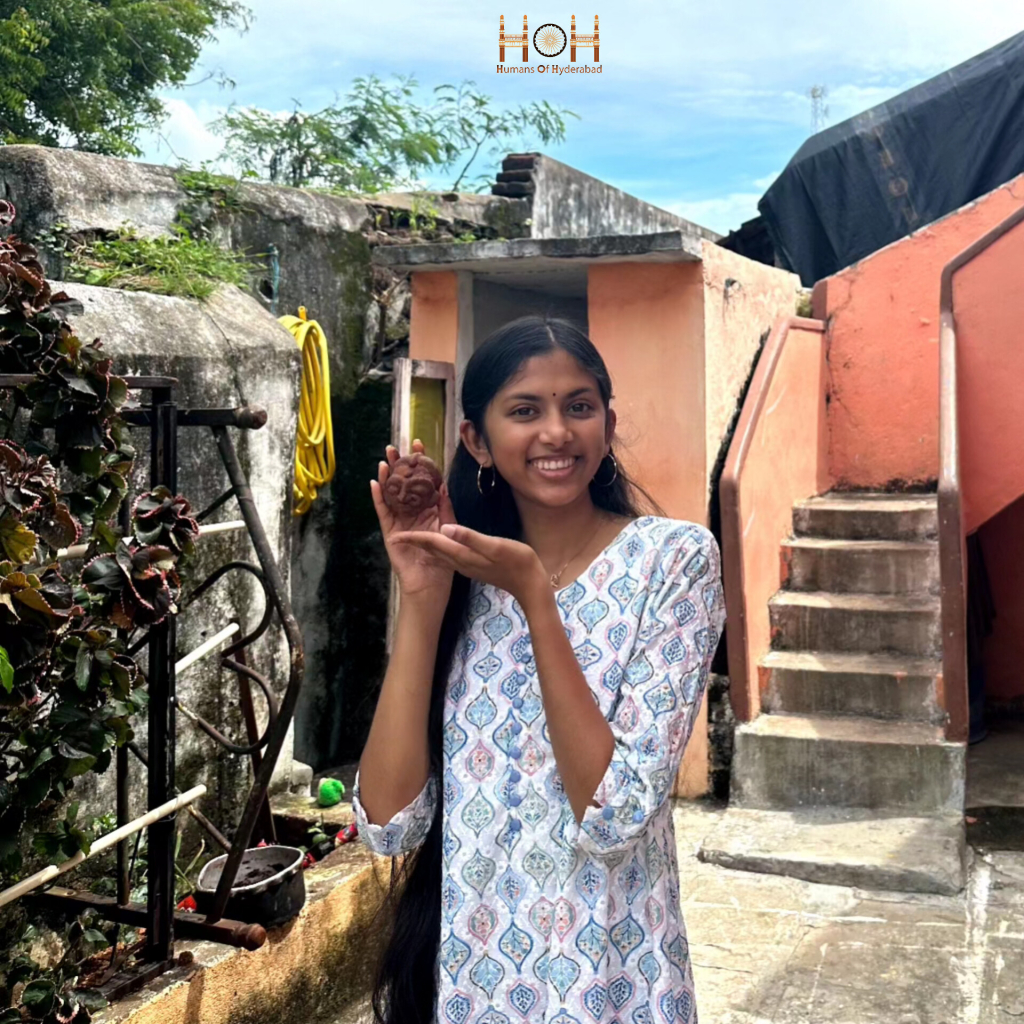“I was born in the United States but grew up immersed in Indian culture. From Sangeetham and Kuchipudi classes to Sunday school to wearing a bottu every day, my connection to my roots ran deep. Five years ago, my family moved to India, where my love for culture found its purpose. After visits to orphanages where I danced with the children and a trip to Shilparamam where I saw the talent of rural artisans, I discovered my zeal to support underprivileged individuals passionate about the arts. I noticed that these individuals had immense potential but did not have the proper resources to reach the level they deserved to be at. I wanted to give others the type of artistic opportunity I was so grateful to have growing up. This motivated me to start the Vaitalika Foundation. It is a nonprofit committed to preserving and promoting our cultural art forms by supporting underprivileged children and rural women artisans, reconnecting individuals with their roots, and spreading awareness about the art forms.
Now, what keeps me going each day is the smiles of the children and rural women after a dance class or one of our visits. There is nothing I enjoy more in this world than spending time with these individuals who hold such a special place in my heart. The Cheers Foundation orphanage (the first orphanage we started working with) has become my weekend comfort space, and full-day visits to the village of Cherial don’t feel like they lasted long enough. All the children from the orphanages and the women from the villages are now practically a part of my family.
As an individual who has always been passionate about the arts and is an aspiring entrepreneur, I wanted to help women entrepreneurs who are passionate about their art forms. In India, we see a large socioeconomic gap that makes it extremely difficult for the less privileged to access equal opportunities. This is especially the case for rural women who are forced to stay within their households, doing nothing but supporting their husbands and children. The reality is that many of these women also have dreams of their own, which they want to pursue on top of taking care of their families. They have the potential to use their skills to achieve great heights but can be restricted from doing so due to stereotypes and cultural beliefs. These individuals are so talented and deserve to be recognized, which is why I chose women artisans specifically to empower and support, alongside the children in the orphanages.
My family and friends have been such a strong support system in my life. To begin, it was my parents who made sure that I stayed connected to my roots even though we lived in the United States. Four hours of dance class, three hours at Sunday school, one hour of Sangeetham class, and one hour of Telugu class every week, plus frequent visits to temples and teaching us the Bhagavad Gita and Hanuman Chalisa. Not only did they drive me to and from these sessions, but they stayed there and waited patiently throughout the long hours of classes. My parents are my lifelong pillars of support.
Another very special individual is my grandma, who loved classical music and was always ready to help those around her. Although she is not with me today, she will always hold a special place in my heart and will remain my inspiration to make a difference in the world.
Apart from them, my cousins and friends have been so supportive, always there to check on me and see if I need help. There has never been a time that I felt alone in life or felt that there was no one there for me, and I am so grateful to all the wonderful people in my life for that.
Moving to India was an immense change, and it was hard to adjust to at first, but it was my family here in India and the new friends I made at school that made this process so easy. They not only helped me settle in, but they helped me discover a sense of confidence in myself that I did not have in me when I was in America. I grew as an individual and stepped into numerous leadership positions within the school. After making a difference within my school community, I wanted to take it a step higher and make a difference within the community. This is what brought me to where I am today. Today, my school leadership roles include, but are not limited to, being head girl of our school, lead producer of our school Annual Day, and founder and captain of the school’s dance team. Apart from this, externally, I started the Vaitalika Foundation, am the co-founder of a culture-based skincare social enterprise named Iskara, and am a community mentor at a mental health site called 7cups. None of this would have been possible if it were not for my family, my teachers, and my friends who pushed me to become the best version of myself and supported me through all the ups and downs.
One of the biggest challenges that I faced was being able to find sources of funding. With a project related to social welfare and development, there is a lot of funding that needs to be collected, but not enough sources that are easily accessible to students. In order to find a way around this, I built a team of 100+ volunteers from 6 different branches across the globe. By having multiple fundraisers happen each month, we are able to ensure that we get constant funding coming in. Although this is true, as the Vaitalika Foundation grows and develops, we continue on our journey of finding more stable sources of funding.
Another challenge that I faced was being able to contact the villages that require support. Villages that require the most support are often disconnected from the internet, so finding their phone numbers and contact information was extremely difficult. We were able to work around this by connecting with larger organizations that worked with rural villages in other ways and asking them for contacts.
Considering that I was a young teenager when I wanted to start Vaitalika, I received a lot of negative feedback and warnings from people around me who made me believe that starting the nonprofit would be too difficult. My biggest regret was letting these comments get to my head and waiting a year and a half before actually starting Vaitalika. If I had started Vaitalika when I first got the idea at the end of 9th grade, I could have made a much bigger impact by today.
Therefore, the biggest piece of advice that I could give to anyone is to just take the leap of faith and get started. It is never too early or too late, and there are no rights and wrongs; just take the process one step at a time. Form your idea, put your team together, and bring your goal to reality. When it comes to making a positive impact on society, the best thing to do is just to trust yourself and begin.”
- Preethika Pavirala, Founder of Vaitalika Foundation
